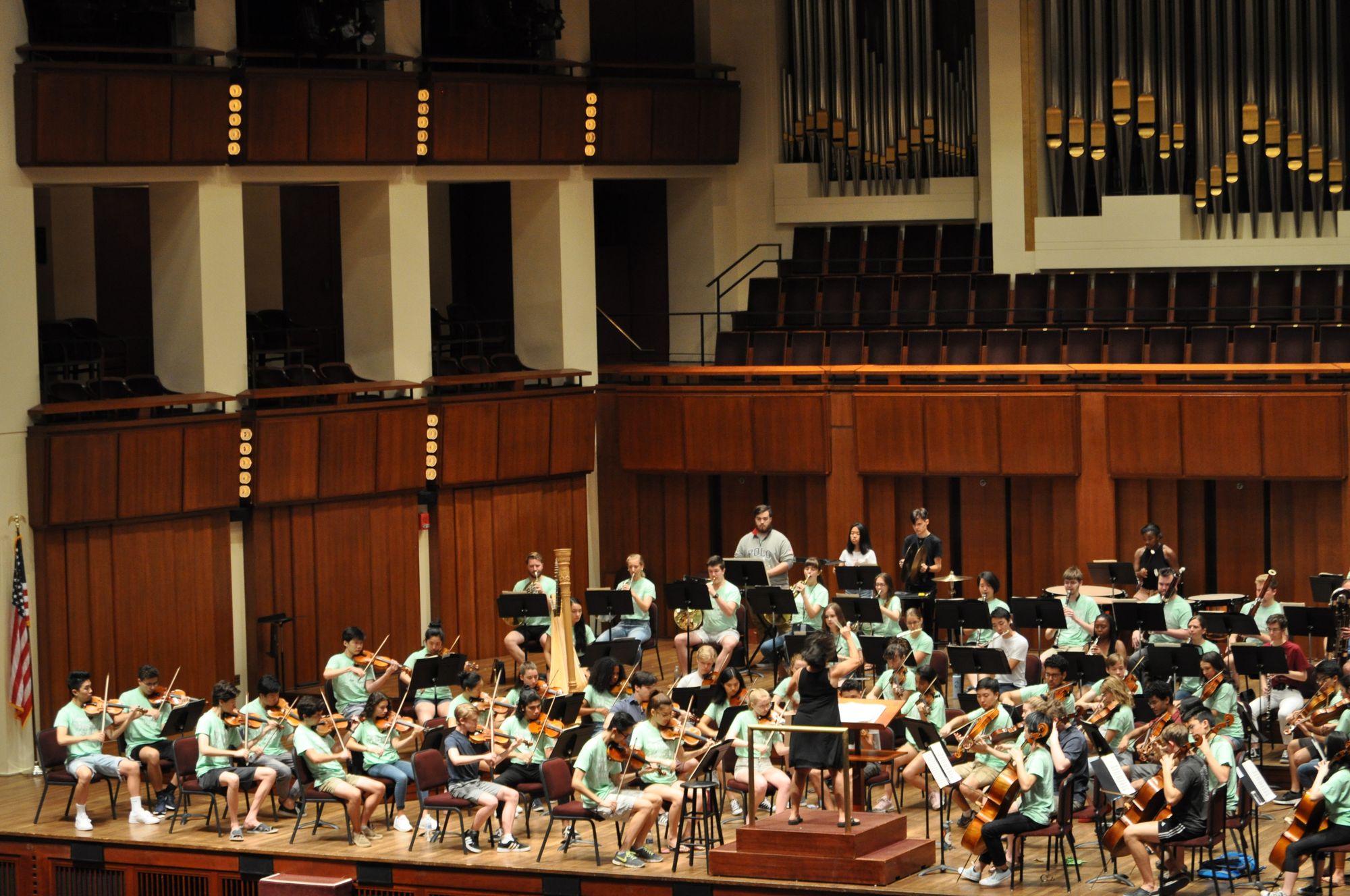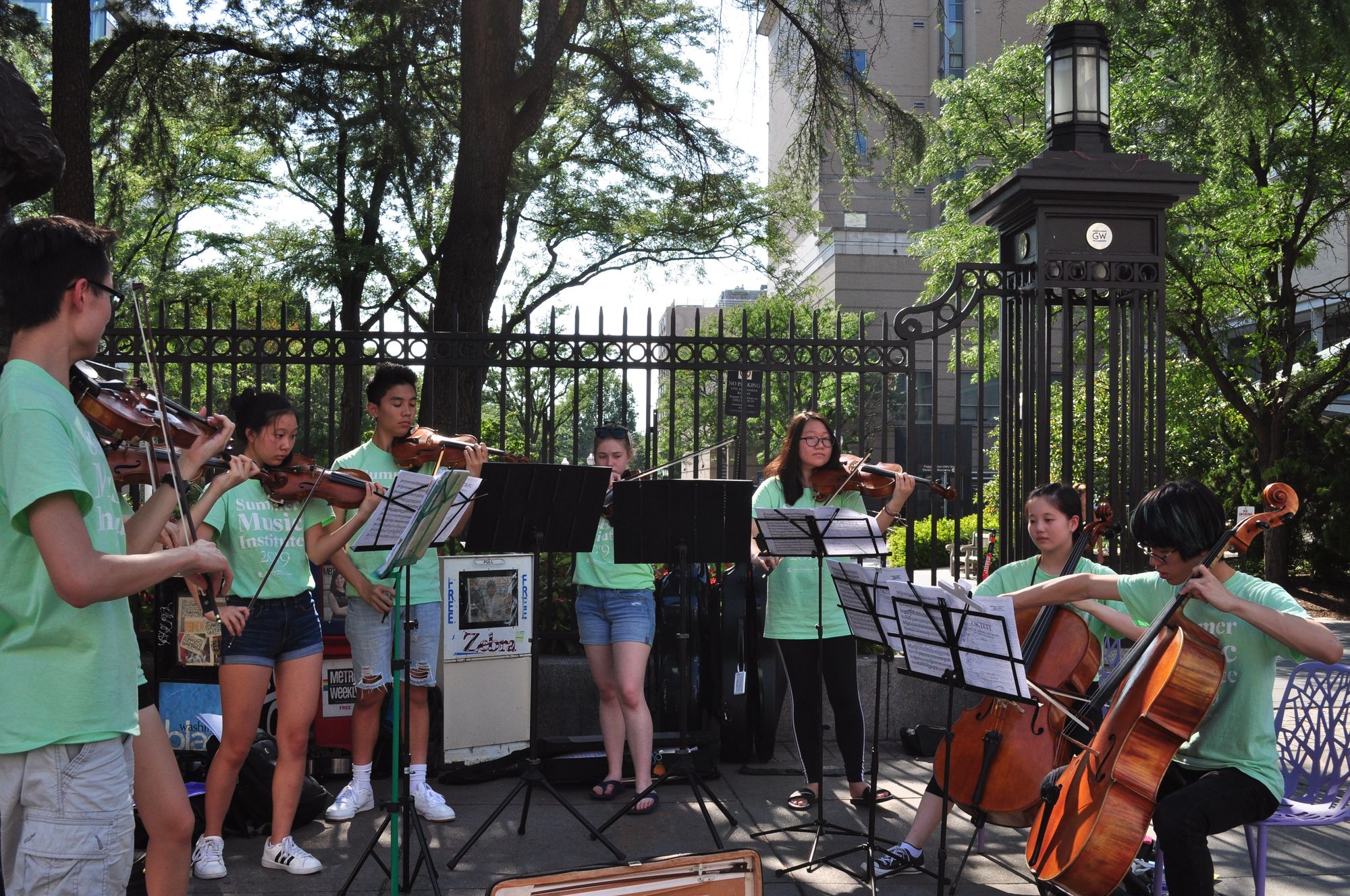My NSO Summer Music Institute experience
Through NSOSMI, I developed immensely as both a musician and a person.
Growing up, I was an extremely shy kid—terrified of talking to new people. I barely initiated conversations or voiced my own opinions, but I didn’t feel the same fear when it came to music. Music felt like a way to express myself without fear or judgment. First, I started to sing (albeit terribly) old K-pop songs and radio tunes. However, as I grew older, classical music—with its strange yet comforting allure—pulled me in, and I quickly fell in love with the charming character and sound of the viola.
After a year of learning viola, I made the decision to join a youth orchestra. Up until then, music had been a solo endeavor, a special connection between the music, my instrument, and my still very shy self, so deciding to audition for the orchestra was not easy. Fortunately, I was accepted, and while I was honestly excited to end my isolation, I harbored much fear about whether I would make friends, be a good team member, or simply be able to interact with others. But as I continued playing in the orchestra, I learned to break out of my shell, and to listen and communicate with those around me. I felt so lucky to be surrounded by such a diverse group of individuals who all had the same passion and the same way of expressing themselves as me. The orchestra community soon became my second family, and orchestra established itself as a core path in my musical journey.
One fateful day, my viola teacher, sensing my love for orchestra, suggested that I audition for the National Symphony Orchestra Summer Music Institute (NSOSMI) – a free month-long program dedicated to training the next generation of orchestral musicians and community leaders. This opportunity seemed too good to be true, but I took a chance and applied, expecting rejection. Much to my surprise, I was accepted, but a similar feeling of nervousness crept up from when I auditioned for my first orchestra. While I fully knew NSOSMI was an amazing opportunity and privilege, I was afraid of branching out, of changing the status quo of what I had grown comfortable with in both a musical and social sense. I almost retreated into my shell again, but unlike before, I had more courage, experience, and determination. And with this hodgepodge of emotions churning in my brain, I boarded my plane to Washington, D.C.

After landing, I stumbled around the airport desperately trying to locate the designated meet-up location for musicians. I was completely failing when, in the distance, I saw another confused person roaming about with a trumpet case in hand. A long internal struggle of “Should I interact?” or “Should I not?” ensued, and after mustering up all my courage, I approached them. We were finally able to find the designated meet-up location together, becoming friends along the way. While to others it might seem a small accomplishment, my success at initiating a conversation and making a friend was a massive milestone to me. This event, in retrospect, properly set the tone for my time at NSOSMI as one of the many firsts I would experience.

At the institute, I met countless other individuals with an inspiring amount of talent and dedication to their craft. While we all came from different backgrounds, music was our common language and our method of growth, and I grew more accustomed to making new friends and introducing myself to people. I cooked together with my roommate, cracked viola jokes with my stand partner, and hung out with my chamber group after rehearsal. Additionally, I was able to explore my ideas of self expression and risk in music. After hearing the stories and attending the workshops of professionals and mentors, my view of music evolved from a form of personal connection to a form of community engagement, closing the traditional gap between performer and non-performer. I was still a bit averse to change, but every supposed risk or change at NSOSMI exposed me to a variety of opportunities and experiences. Not only was I able to meet new musicians and reevaluate my perspective, but I also performed in spaces and genres outside of my comfort zone – busking outside of the Metro with friends, performing for children at the public library with my chamber group, and improvising for the first time without fear.
Fueled by the fond memories of the previous year, I attended NSOSMI for the second year, held virtually due to the pandemic. I was still able to learn so much, connecting with others, and creating music despite being far apart. I especially appreciated the emphasis on healthy technique and prioritizing self care for musicians, as it was a topic that hadn’t been brought up before.
Through NSOSMI, I developed immensely as both a musician and a person. I became more open to connecting with others, expressing myself, and taking risks. A few years after my time at NSOSMI, I stumbled upon Tonic. As current Tonic users may already know, Tonic truly acts as a pocket conservatory, and I feel that the application replicates many of the features I enjoyed from NSOSMI in a portable format. I have found common ground with a lovely community that shares many of my interests, whether it be appreciating TwoSet Violin or being a fellow member of the Viola Gang. The studio classes feel like virtual workshops, and I am able to listen to and learn from other musicians, even creating my own private studios for practice. Joining and participating in both NSOSMI and Tonic have really been highlights of my musical journey, and I recommend trying out both for anyone interested!
